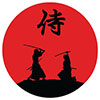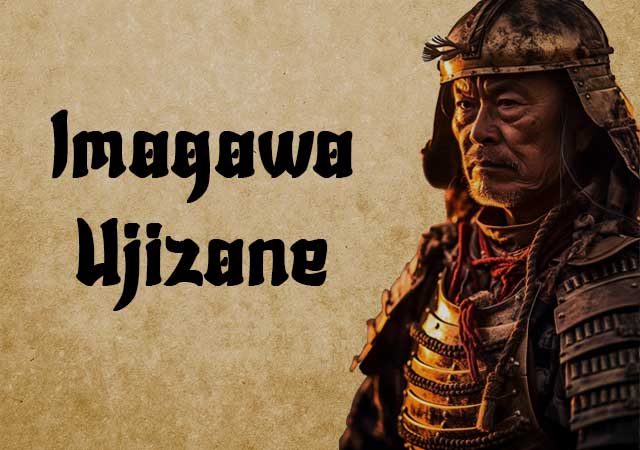
Imagawa Ujizane (1538 – January 27, 1615) was a Japanese daimyō who lived through the Sengoku and early Edo periods. He became the tenth head of the Imagawa clan, following in the footsteps of his father, Imagawa Yoshimoto. Ujizane was the father of Imagawa Norimochi and Shinagawa Takahisa.
Born in Sunpu Domain as the eldest son of Imagawa Yoshimoto, Ujizane’s childhood name was Tatsuomaru. In 1554, he strengthened political ties through his marriage to Lady Hayakawa, daughter of Hojo Ujiyasu, as part of the strategic Kai-Sagami-Suruga Alliance. He officially inherited leadership of the clan in 1558 when his father retired to focus on military campaigns in Tōtōmi and Mikawa Provinces.
However, in 1560, following his father’s death at the Battle of Okehazama, chaos erupted in Tōtōmi and Mikawa. Ujizane struggled to maintain control as many vassals defected. The situation worsened in 1568 when his grandmother, Jukei-ni, a key political figure in the clan, passed away. This loss opened the door for attacks from Takeda Shingen and Tokugawa Ieyasu.
In response, Ujizane attempted to retaliate against the Takeda clan by imposing a salt embargo, but this backfired when Uesugi Kenshin supplied salt to the Takeda, accelerating the Imagawa clan’s decline. That same year, Shingen invaded Suruga, swiftly capturing Sunpu Castle. Ujizane was forced to flee to Kakegawa Castle in Tōtōmi Province, but after his defeat at the 1569 Siege of Kakegawa, he allied with Tokugawa Ieyasu, hoping to regain control of Suruga.
Ujizane later met with Oda Nobunaga and Tokugawa Ieyasu at Sokoku-ji Temple in 1575, as recorded in the "Shincho Koki" (Account of Nobunaga). He also participated in the Battle of Nagashino against the Takeda clan. Eventually, the Imagawa family became retainers under the Tokugawa, with Ujizane holding the rank of kōke (master of ceremonies).
Despite the political turbulence, Ujizane was known for his refined interests in kemari (a traditional Japanese ball game) and poetry. He passed away peacefully at the family estate in Shinagawa in 1615.
See also
-
Yamagata Masakage
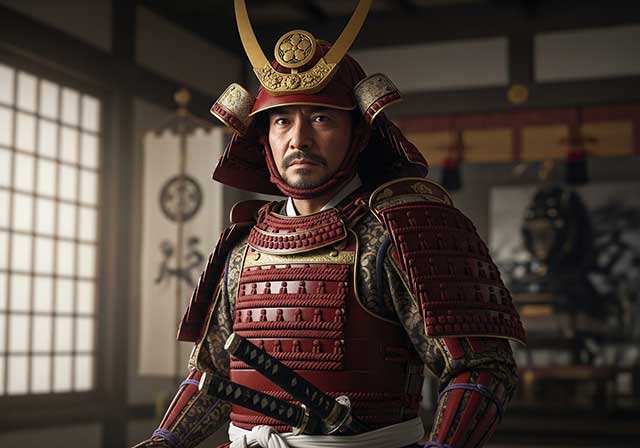
Masakage was one of Takeda Shingen’s most loyal and capable commanders. He was included in the famous list of the “Twenty-Four Generals of Takeda Shingen” and also belonged to the inner circle of four especially trusted warlords known as the Shitennō.
-
Yagyu Munenori
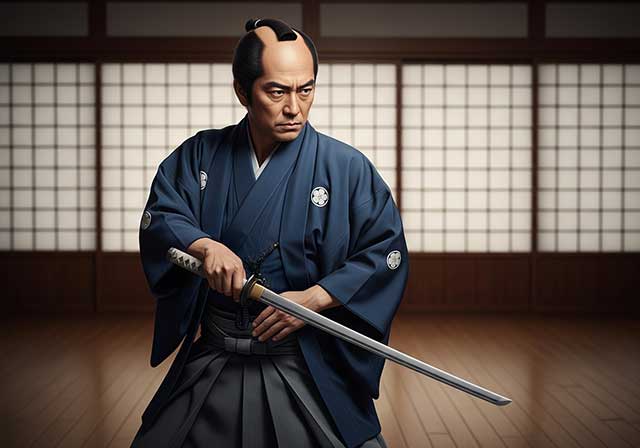
Yagyū Munenori began his service under Tokugawa Ieyasu while his father, Yagyū Muneyoshi, was still at his side. In 1600, Munenori took part in the decisive Battle of Sekigahara. As early as 1601, he was appointed a kenjutsu instructor to Tokugawa Hidetada, Ieyasu’s son, who later became the second shogun of the Tokugawa clan.
-
Yagyu Muneyoshi
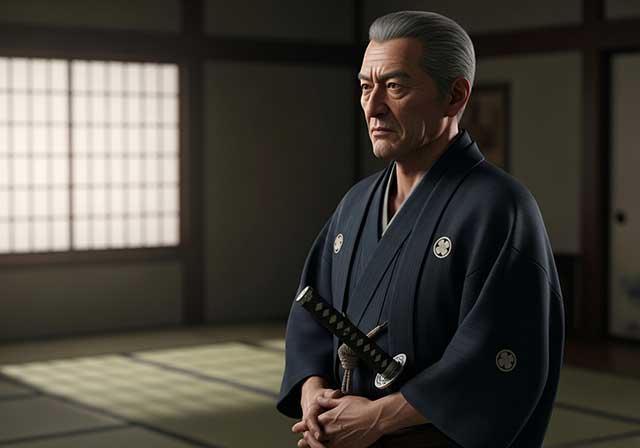
A samurai from Yamato Province, he was born into a family that had been defeated in its struggle against the Tsutsui clan. Muneyoshi first took part in battle at the age of sixteen. Due to circumstances beyond his control, he was forced to enter the service of the Tsutsui house and later served Miyoshi Tōkei. He subsequently came under the command of Matsunaga Hisahide and in time became a vassal first of Oda and later of Toyotomi.
-
Endo Naozune
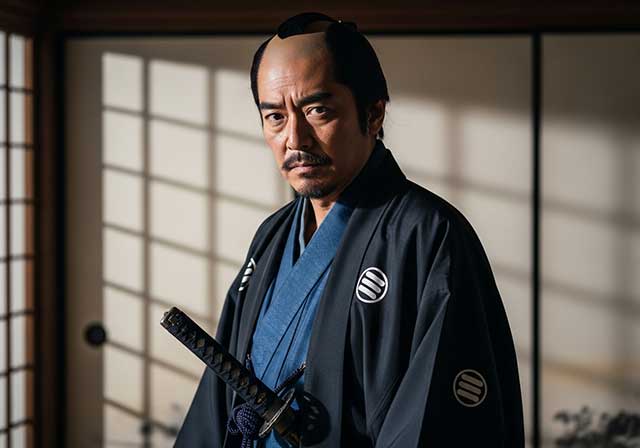
Naozune served under Azai Nagamasa and was one of the clan’s leading vassals, renowned for his bravery and determination. He accompanied Nagamasa during his first meeting with Oda Nobunaga and at that time asked for permission to kill Nobunaga, fearing him as an extremely dangerous man; however, Nagamasa did not grant this request.
-
Hosokawa Sumimoto
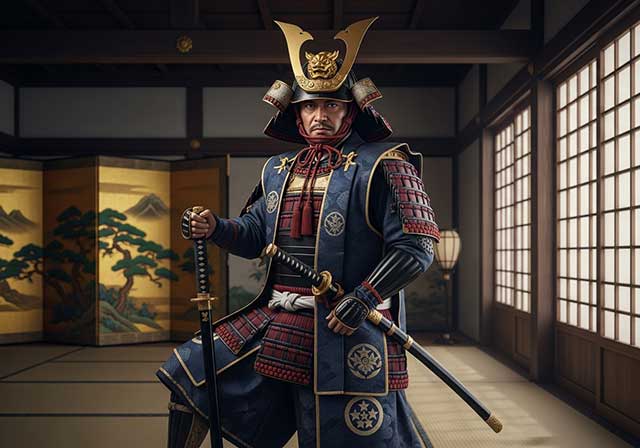
Sumimoto came from the Hosokawa clan: he was the biological son of Hosokawa Yoshiharu and at the same time the adopted son of Hosokawa Masamoto, the heir of Hosokawa Katsumoto, one of the principal instigators of the Ōnin War. Masamoto was homosexual, never married, and had no children of his own. At first he adopted Sumiyuki, a scion of the aristocratic Kujō family, but this choice provoked dissatisfaction and sharp criticism from the senior vassals of the Hosokawa house. As a result, Masamoto changed his decision and proclaimed Sumimoto as his heir, a representative of a collateral branch of the Hosokawa clan that had long been based in Awa Province on the island of Shikoku. Almost immediately after this, the boy became entangled in a complex and bitter web of political intrigue.
-
Honda Masanobu
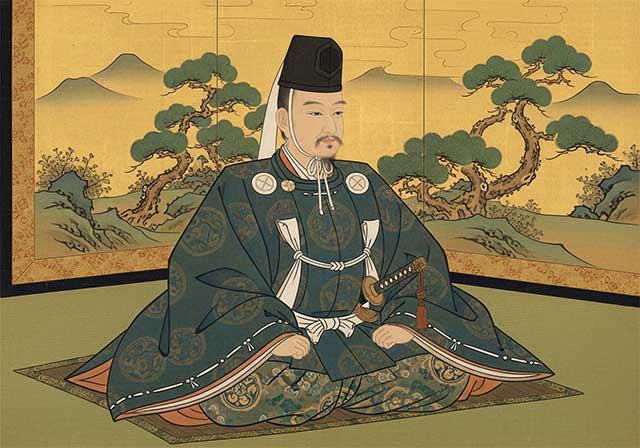
Masanobu initially belonged to the retinue of Tokugawa Ieyasu, but later entered the service of Sakai Shōgen, a daimyo and priest from Ueno. This shift automatically made him an enemy of Ieyasu, who was engaged in conflict with the Ikkō-ikki movement in Mikawa Province. After the Ikkō-ikki were defeated in 1564, Masanobu was forced to flee, but in time he returned and once again entered Ieyasu’s service. He did not gain fame as a military commander due to a wound sustained in his youth; nevertheless, over the following fifty years he consistently remained loyal to Ieyasu.
-
Honda Masazumi
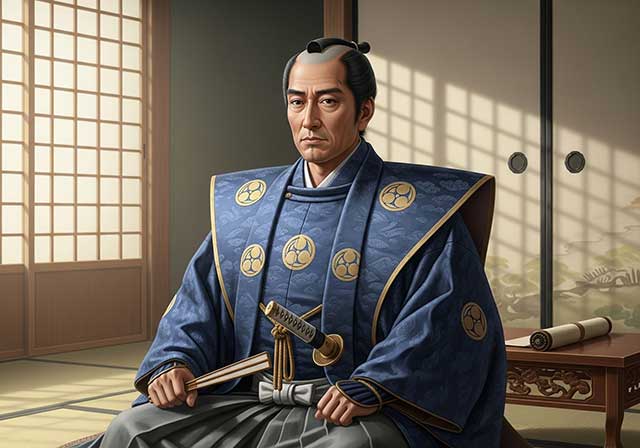
Masazumi was the eldest son of Honda Masanobu. From a young age, he served Tokugawa Ieyasu alongside his father, taking part in the affairs of the Tokugawa house and gradually gaining experience in both military and administrative matters. At the decisive Battle of Sekigahara in 1600, Masazumi was part of the core Tokugawa forces, a clear sign of the high level of trust Ieyasu placed in him. After the campaign ended, he was given a highly sensitive assignment—serving in the guard of the defeated Ishida Mitsunari, one of Tokugawa’s principal enemies—an obligation that required exceptional reliability and caution.
-
Hojo Shigetoki
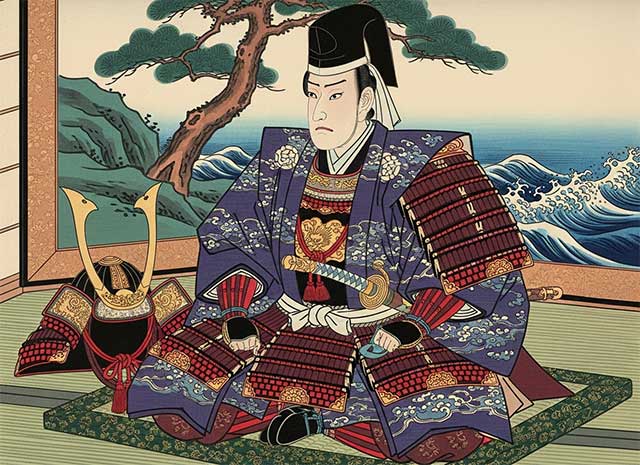
Hōjō Shigetoki, the third son of Hōjō Yoshitoki, was still very young—only five years old—when his grandfather Tokimasa became the first member of the Hōjō clan to assume the position of shogunal regent.

